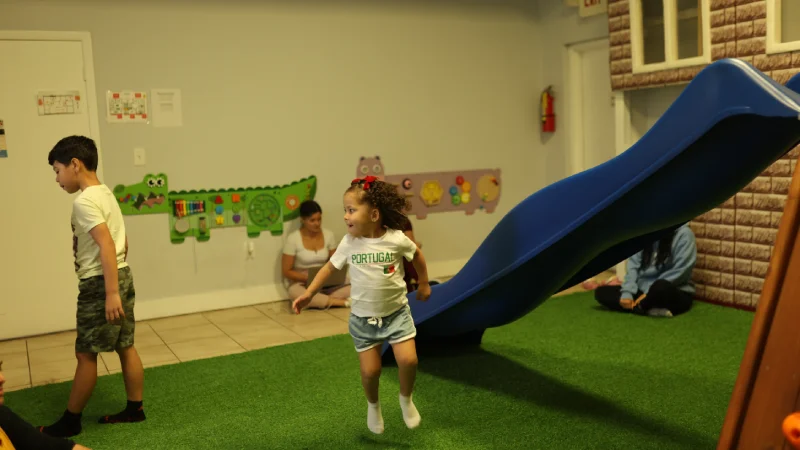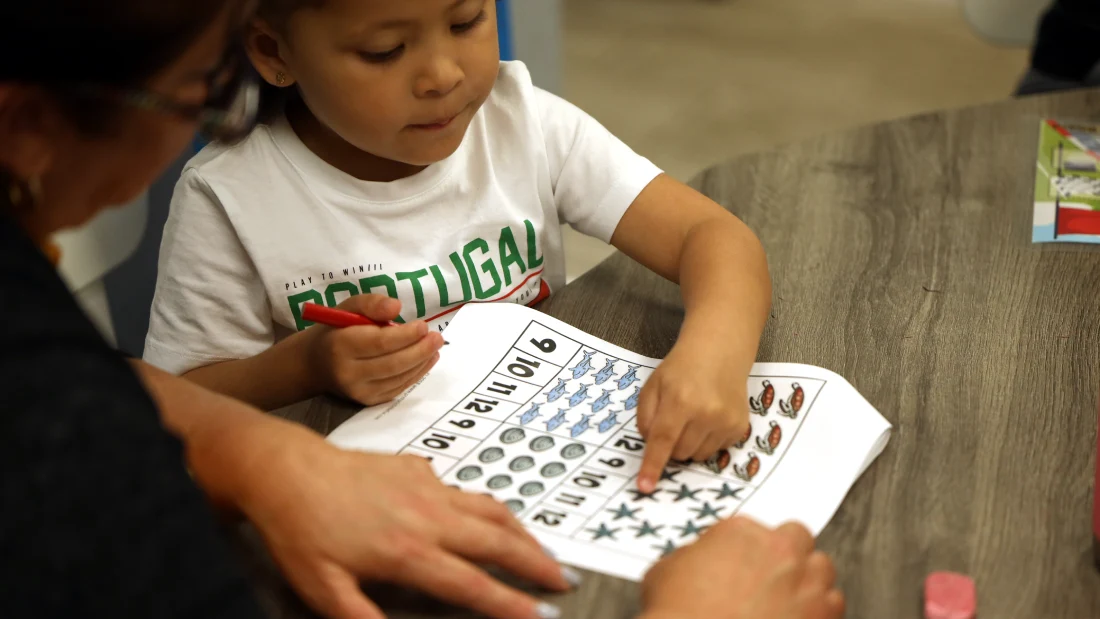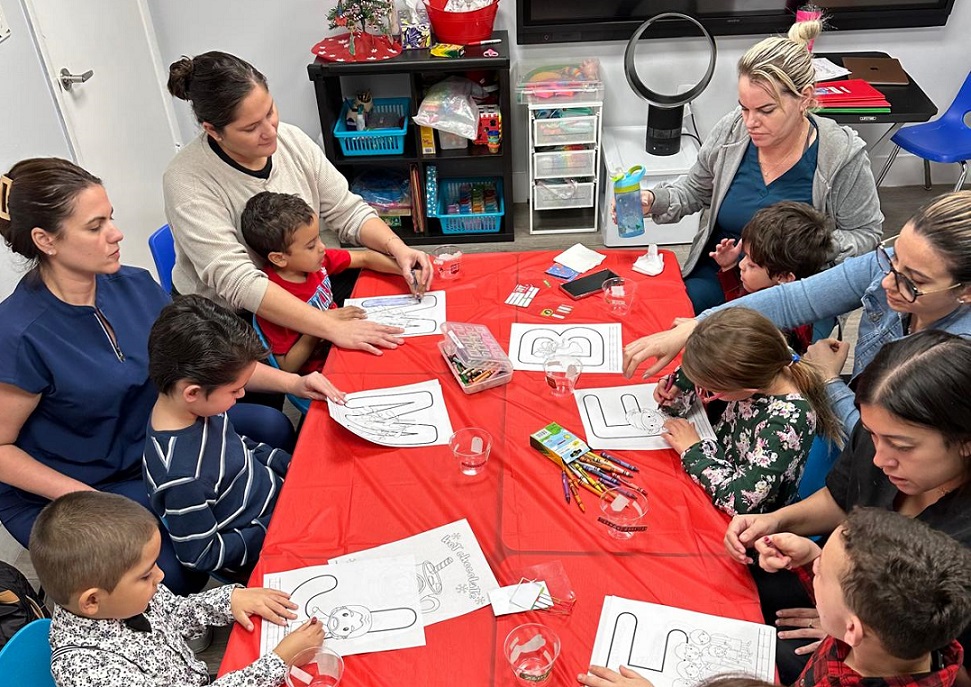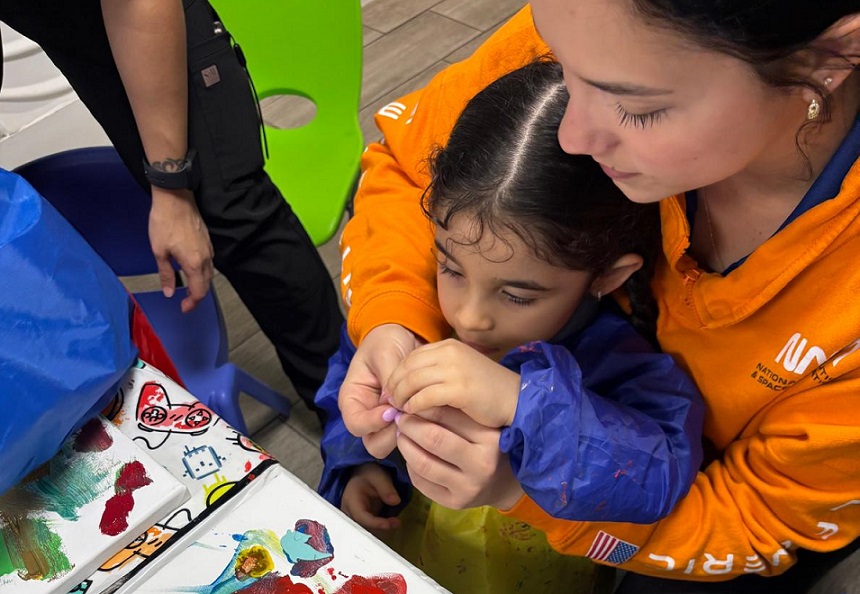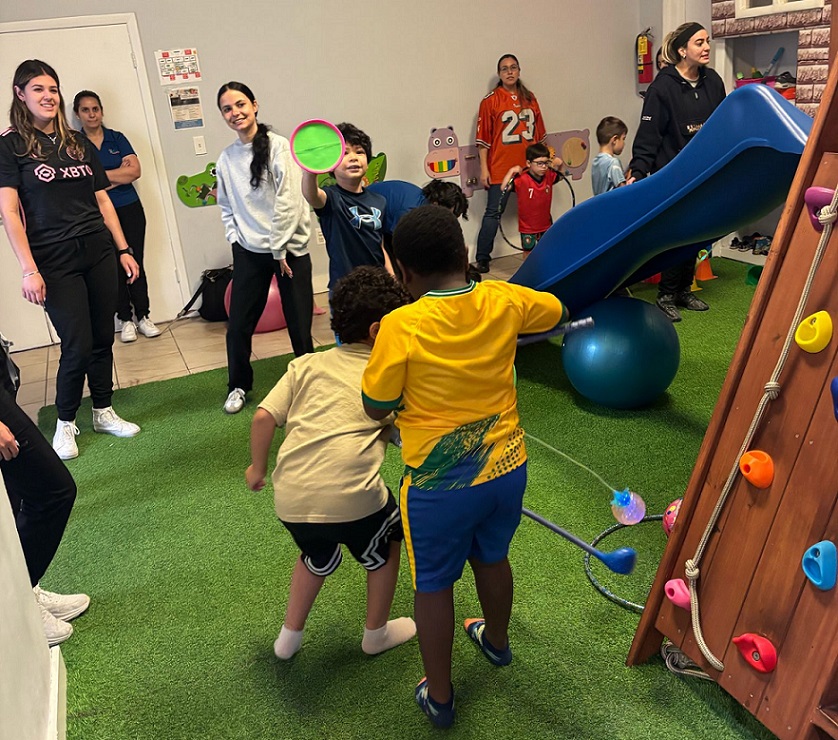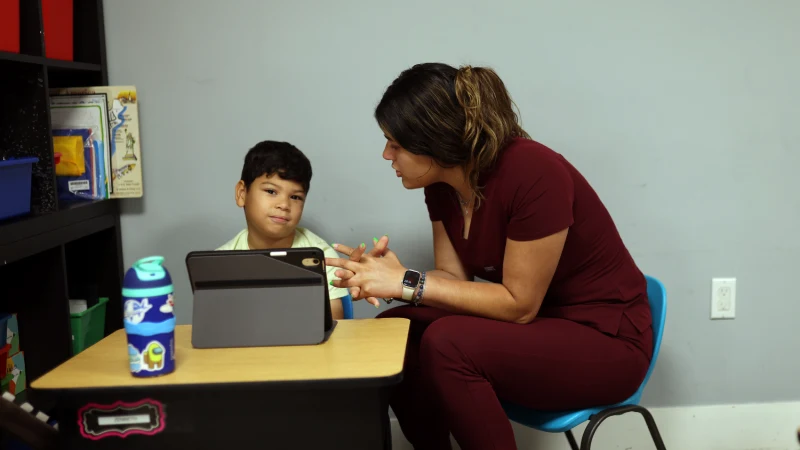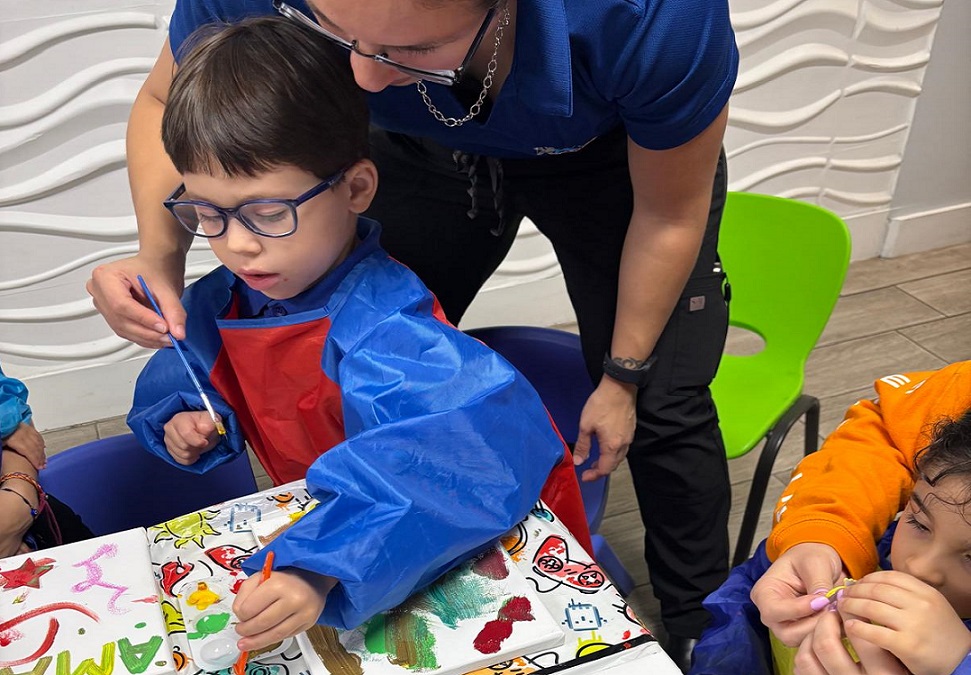Occupational therapy is an essential tool to help children with autism develop key skills for their daily lives. In this way, and through play as a natural and enjoyable activity, occupational therapists create stimulating environments that promote learning, communication, and independence in children.
Participation in occupational therapy for children with autism is crucial for acquiring and strengthening life skills. Therefore, alongside play, it is fundamental for fostering their overall development. The good news is that social and self-care scores improved by 94.1% between the pre-test and five sessions of occupational therapy.
For this reason, in this article, we will explore how play becomes a powerful strategy within occupational therapy for children with autism, allowing them to strengthen their social skills while enjoying every moment. Let’s discover how this unique combination can make a difference in their development.
What is the connection between play and occupational therapy for children with autism?

Occupational therapy for children with autism has undergone a necessary process of development to appropriate its main goal: engaging its patients in meaningful occupations. Similarly, play, as a natural activity in childhood, becomes a fundamental tool within occupational therapy for children with autism.
This approach allows therapists to work on the comprehensive development of essential skills while the children enjoy activities specifically designed for their needs. So, what is occupational therapy based on play? It is that through play, communication is fostered, motor skills are improved, and independence is promoted.
We can summarize the relationship between occupational therapy for children with autism and play in the following list:
- Multisensory Development: Play allows the integration of visual, auditory, and tactile stimuli.
- Strengthening Social Skills: Group play activities teach children to share, wait their turn, and work as a team.
- Boosting Motor Skills: Physical occupational therapy games stimulate both fine and gross motor skills.
- Increased Communication: Through play, therapists promote verbal and non-verbal interaction.
- Fostering Autonomy: Games that simulate everyday tasks help children develop independence in daily activities.
- Stimulating Creativity: Play activities provide opportunities for creative problem-solving.
- Reducing Stress and Anxiety: The play environment generates comfort and security.
Are sensory games important in occupational therapy for children with autism?
Play is a key element in child development, and for children with autism, it is also a powerful therapeutic tool. Additionally, within occupational therapy for children with autism, play has become a bridge that facilitates the development of essential skills while promoting enjoyment and active participation from the child.
It may seem complicated at first glance, but the entertainment aspect of play has a therapeutic validity that justifies its use in interventions. Therefore, this connection between play and occupational therapy for children with autism not only fosters interaction with the environment but also drives learning, independence, and emotional well-being.
Thus, we can conclude that sensory games are one of the foundations of occupational therapy for children with autism for the following reasons:
- Sensory stimulation through play: Play activities help children with autism better process sensory stimuli.
- Strengthening motor skills: Specific games improve coordination and strengthen both fine and gross motor skills.
- Development of social skills: Group games or interactive activities teach concepts such as teamwork, sharing, and empathy.
- Boosting communication: Through play, verbal and non-verbal expression is encouraged, promoting the exchange of ideas and emotions.
- Promotion of autonomy: Games that simulate everyday activities allow children to learn practical skills for daily life.
- Encouragement of creative thinking: Occupational therapy games stimulate imagination, helping children find new solutions.
- Reduction of stress: Therapeutic play creates a relaxed and safe environment, reducing anxiety and facilitating learning.
What is the importance of interactive games in strengthening social skills?
At this point, interactive games are an invaluable tool for fostering social skills in children, especially those related to communication and interaction with their environment. Therefore, in the context of pediatric occupational therapy, these playful activities allow children to practice skills such as teamwork, taking turns in conversations, and conflict resolution in a safe and enriching environment.
Now, by incorporating game dynamics designed to promote interaction, occupational therapists enable children to express themselves more effectively and gain self-confidence. Additionally, being involved in play is the ultimate goal, which may require different actions depending on the reasons that hinder this effort.
Thus, interactive games can strengthen social skills because:
- Promotion of verbal and non-verbal communication: Interactive games encourage children to express their ideas, needs, and emotions.
- Strengthening teamwork: Collaborative activities teach children to cooperate, share tasks, and achieve common goals.
- Learning turns and patience: Structured games help children respect turns and wait patiently.
- Fostering empathy: Games that simulate everyday social situations allow children to learn to put themselves in others’ shoes.
- Conflict resolution: In play, children face challenges that teach them to negotiate and seek appropriate solutions to disagreements.
- Building confidence: By interacting with others in play, children develop self-esteem and confidence.
- Development of social bonds: Interactive games strengthen peer relationships, promoting a sense of community.
Is it possible to develop motor skills through playful activities?
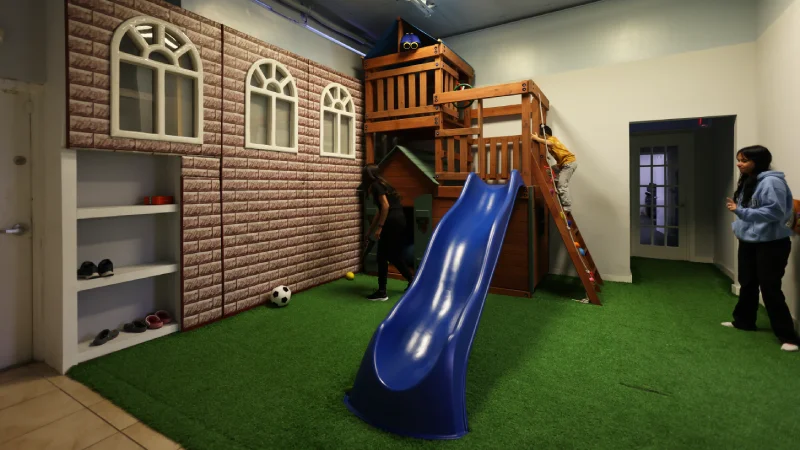
We already know that the development of motor skills is essential in childhood, and playful activities represent one of the most effective and enjoyable ways to achieve this. Of course, for children with special needs, such as those with autism, play becomes a key therapeutic tool within occupational therapy for children with autism.
Therefore, through adapted dynamics, children can improve their coordination, strength, and dexterity while actively participating in environments designed for their growth. In this way, we can work with them by restoring skills, adapting materials, and modifying their play and learning environments.
The importance of developing motor skills through play can be summarized as follows:
- Improvement of fine and gross motor coordination.
- Promotion of mobility and balance.
- Stimulation of motor planning.
- Muscle strengthening.
- Encouragement of creativity in movement.
- Promotion of independence.
- Reduction of anxiety in complex movements.
The Role of Occupational Therapists in Designing Therapeutic Games.
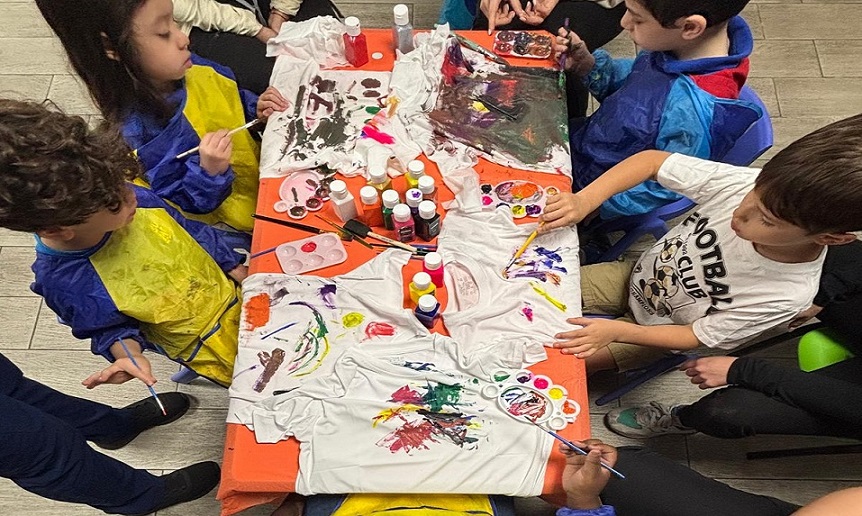
Naturally, occupational therapists play a fundamental role in developing therapeutic games that are tailored to the individual needs of children with autism. Through observation and creativity, these professionals design playful activities aimed at strengthening fundamental skills for their development.
Thus, the design of therapeutic games becomes a powerful tool for promoting learning and development in a safe and stimulating environment, making a difference in the lives of children. Furthermore, play has an implicit goal for us as occupational therapists, which is to facilitate or support engagement in meaningful occupations.
In this way, the role of therapists in designing therapeutic games consists of:
- Personalized assessment: They analyze the individual needs of each child to design games that address specific areas of development.
- Promotion of therapeutic goals: The created games enhance coordination, foster communication, and strengthen social skills.
- Adaptation of games to different ages and abilities: They adjust activities to ensure they are inclusive and accessible for each child.
- Use of play to improve sensory regulation: The designed games help children manage sensory stimuli.
- Incorporation of creativity and innovation: They combine traditional and modern elements to create engaging and dynamic games.
- Facilitation of progressive learning: The games are structured to gradually increase levels of challenge.
- Collaboration with families: Therapists work together with parents to implement therapeutic games at home.
Frequently Asked Questions about Occupational Therapy for Children with Autism.
- What is occupational therapy for children with autism?
Occupational therapy is a professional intervention that helps children with autism develop necessary skills for daily life, such as motor skills, communication, self-care, and social interaction.
- Why is play so important in occupational therapy for children with autism?
Play is a key therapeutic tool because it naturally motivates the child, allowing them to develop cognitive, motor, and social skills in a safe, stimulating, and fun environment.
- What benefits do sensory games offer to children with autism?
Sensory games help children better process environmental stimuli, improve their emotional self-regulation, promote motor development, and enhance communication and learning.
- How do interactive games help improve social skills?
Interactive games teach children to communicate, collaborate, respect turns, resolve conflicts, and build social bonds—essential skills for their social integration.
- What role does the occupational therapist play in designing play activities?
The occupational therapist personalizes playful activities to adapt them to the individual needs of the child, ensuring that each game has a clear therapeutic goal that promotes their development.
The Occupational Therapy Program at Koala ABA Learning Centers.
At Koala ABA & Learning Centers, our comprehensive Occupational Therapy program is designed to meet the unique needs of each child. By focusing on the development of gross motor skills, fine motor activities, and improving handwriting, we create a supportive environment for children to thrive.
Our experienced occupational therapy team begins the therapeutic journey by conducting thorough assessments. These assessments identify any obstacles that may prevent the individual from performing typical daily activities. Thus, we evaluate several crucial areas, including:
- How the child learns.
- How the child plays.
- How the child takes care of themselves.
- How the child interacts with their environment.
At Koala ABA & Learning Centers, through fun and engaging activities, we address fine motor skills such as handwriting, scissor cutting, and other dexterities. Therefore, sensory and motor activities also focus on gross motor milestones, such as balance, coordination, and grade-level physical activities.
Whatever challenges arise, our occupational therapists support independence. Contact us today! Discover how our children learn to engage fully in school, home, and play.
